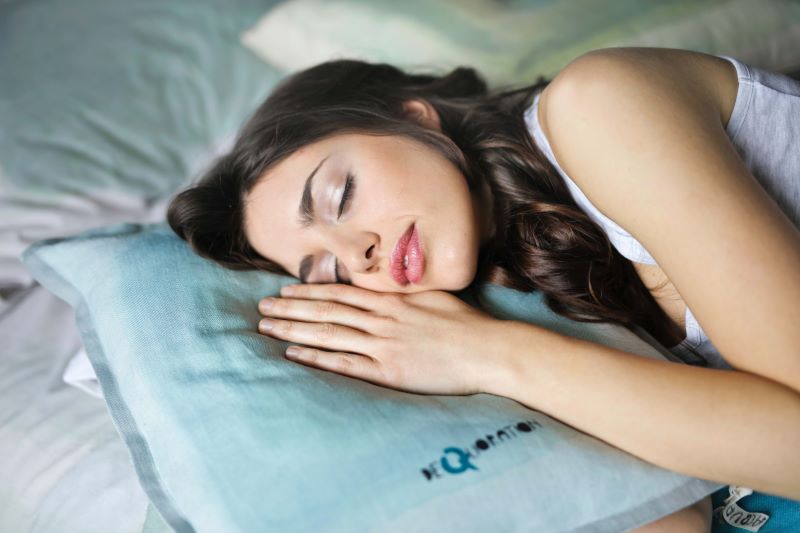Shedding Light on Sleep: A Comprehensive Guide to Restful Nights
As modern life pushes the boundaries of night and day with artificial lighting, understanding and mitigating its impact on sleep is crucial. This blog delves into the effects of nighttime light exposure and offers a multifaceted approach to achieving restful sleep through functional medicine and mindful practices.
 The Impact of Light at Night
The Impact of Light at Night
The Impact of Nighttime Illumination Excessive exposure to artificial light at night disrupts our circadian rhythms, suppressing melatonin production and leading to a host of sleep-related issues. This section explores how prolonged exposure to blue light impacts our health and ways to minimize its effects.
Reclaiming The Night – Practical Steps to Mitigate the Effects of Blue Light
- Lighting Choices: Transition to warm, low-blue light in the evenings.
- Device Management: Reduce screen time to a minimum of 1-2 hours before bed and use blue light filters.
- Sleep Sanctuary: Ensure your bedroom is conducive to sleep with dark curtains and a cool temperature.
- Natural Light Exposure: Balance your circadian rhythm by spending time in natural light during the day.
- Relaxation Routines: Develop pre-sleep rituals involving calming activities to wind down effectively.
The Power of Melatonin
Often referred to as the “sleep hormone,” is critical for maintaining our body’s circadian rhythm and facilitating deep, restorative sleep. Its benefits extend beyond sleep regulation:
- Antioxidant Properties: Melatonin acts as a potent antioxidant, protecting cells from damage.
- Immune Support: It plays a role in enhancing the immune system’s efficiency.
- Mental Health: Adequate levels of melatonin are associated with better mood and cognitive function.
While the body naturally produces melatonin, factors like aging and excessive light exposure at night can decrease its production. Supplemental melatonin can be used under professional guidance to adjust sleep cycles, particularly for shift workers or those experiencing jet lag.
Cultivating Calm – Mindful Breathing Techniques
Mindful breathing is an effective way to reduce stress and prepare the body for sleep. Two techniques include:
- Mindful Breathing Technique:
- Sit quietly, focusing on deep, rhythmic breathing.
- Observe the sensations of breath and release tension with each exhale.
- Practice regularly to reduce stress and induce relaxation.
- The 4-7-8 Breathing Technique:
- Inhale: Breathe in quietly through the nose for 4 seconds.
- Hold: Hold your breath for 7 seconds.
- Exhale: Blow air out through the mouth for 8 seconds.
- Repeat this cycle four times.
This technique, developed by Dr. Andrew Weil, is particularly effective in reducing anxiety and helping individuals fall asleep quicker.
Section 5: Nourishing Sleep – Healthy Eating and Lifestyle Choices Diet and lifestyle significantly impact sleep quality. Consuming a balanced diet rich in nutrients supports overall health and enhances sleep. Key tips include:
- Avoid Stimulants: Limit caffeine and sugar, especially in the late afternoon and evening.
- Light Evening Meals: Choose lighter dinners that are easier to digest, minimizing discomfort and disruptions during sleep. Try to eat 3-4 hours before going to bed.
- Hydration: Stay well-hydrated throughout the day, but reduce fluid intake before bedtime to minimize nighttime awakenings.
Incorporating regular physical activity, managing stress, and maintaining a consistent sleep schedule also contribute to better sleep.
 Benehealth Lifestyle Program
Benehealth Lifestyle Program
The Benehealth Lifestyle Program takes a holistic approach to health and well-being, emphasizing the importance of sleep within the broader context of a healthy lifestyle. This program offers personalized guidance on:
- Nutritional Planning: Tailored advice on diet to support sleep and overall health.
- Physical Activity: Recommendations on exercise routines that align with your body’s needs and promote restful sleep.
- Stress Management: Techniques and practices to reduce stress and improve sleep quality.
By joining the Benehealth Lifestyle Program, you gain access to a supportive coach and expert guidance, empowering you to make informed choices about your health and well-being. Embrace this comprehensive approach to enhance your sleep and live a more balanced, vibrant life.
 Embracing Wellness: Your Path to Restful Nights and Vibrant Days
Embracing Wellness: Your Path to Restful Nights and Vibrant Days
Improving sleep is a multifaceted endeavor that requires attention to light exposure, stress levels, diet, and overall lifestyle. By following the strategies outlined in this guide and participating in the Benehealth Lifestyle Program, you can enjoy deeper, more restorative sleep and improved health. Embrace the night and unlock the key to a brighter, more energetic tomorrow.

